To many, Rock-n-Roll is one of the cornerstones of culture and artistic expression. From generation to generation, the names may change, but the concept remains the same. There are, however, a few bands that come along which change the very fabric of Rock-n-Roll history, and one of the foremost of these is none other than England’s Deep Purple. Formed back in 1968, Deep Purple has gone on to become one of the pioneers of what is now known as Heavy Metal and Hard Rock music, still influencing musicians to this day. In fact, one would be hard pressed not to find a young aspiring guitarist somewhere in their bedroom learning the riff to one of their songs. Releasing nineteen studio records, touring the world countless times over, and still rocking hard for over four decades, Deep Purple are one compelling band. Recently we sat down with long-time bassist Roger Glover about the history of Deep Purple, life’s many lessons, touring, and much more.
CrypticRock.com – Deep Purple has attained an amazing career as one of the primary heavy Progressive Rock bands of all-time over the past forty plus years. Tell us, what has this fantastic journey been like?
Roger Glover – Well that is a hell of a question. It has been a life. You know what? When I was fifteen and in school, on Wednesday afternoons it was sports day and in the Winter that meant cross country running and none of us like that. And so we used to cut out of school and go to a local coffee bar. We had our first band going at the time and we had one amplifier between us. We were dreaming about, “oh wouldn’t it be great to have more equipment?” Then I was sitting in this café one Wednesday afternoon, doodling in my exercise book and I drew a stage, a dream stage with platforms for the drums. It included enormous amplifiers and little stick figures in front of them and lights and a PA. At fifteen years old I certainly did not anticipate the rest of my life being like that. I guess I must have been touched by some magic fairy that had to be passing which said your dream will come true.
I still to this day, and all of us do actually, pause every once and again and go “how the hell did I get here?” It is a hell of a ride, but then everyone’s life is like a hell of a ride. It is like a roller coaster ride, it has its ups and downs like everyone’s life. Except you do this more or less in public, and you make your mistakes in public (laughs). Apart from that it is just a regular life, but it is a very unusual life. It is something I have grown to appreciate that I have two lives. I have a life as a working musician, touring the world, etc. Then I have a life as a family man with a normal life. Not many people get to do that. People have one life they live, so I feel very privileged.
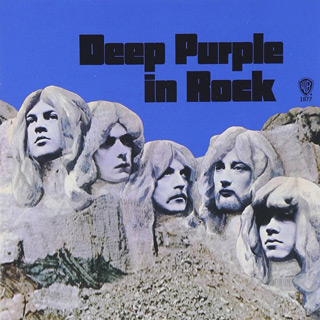
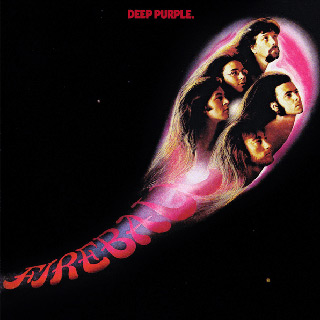
CrypticRock.com – It certainly is a wonderful thing to have those two to balance. Of course you have been very fortunate, but Deep Purple certainly has earned the label as one of the hardest touring bands in the world through the years. Through your years of touring, what are some essential lessons you have learned?
Roger Glover – Wow. Lots of lessons actually, the essential ones are to look out for yourself a bit more. I think when you are young you do not have to look after your body quite as much as you do when you get a bit older. So you abuse it more, and I certainly went through my share of self-abuse, pardon the expression (laughs). Self-abuse being something else as well. You learn to look after yourself, you learn to put ‘do not disturb’ on the door, you learn to have a pee before you go on tour (laughs).
When people ask me “how do you get to be successful?” I usually answer by saying, first of all you have to learn how to fail because you learn from failure, you do not learn from success. You enjoy success, but you do not learn much from it. You learn from failing at something, and that is the key. Failing is difficult to deal with, especially if it comes not in ones and twos but tens and twenties. You get knocked down, you have to get back up again, you get knocked down, you have to get up again, and so it goes. A lot of people do not have the energy or the will to withstand that. That is what you have to do. Getting successful is not being a celebrity, not being famous, not being rich. It is being true to yourself and being successful and communicating your creative urges to other people. That is real success. Real success to me is not having a hit album, but it is about having an album I am proud of. That is sometimes two different things.
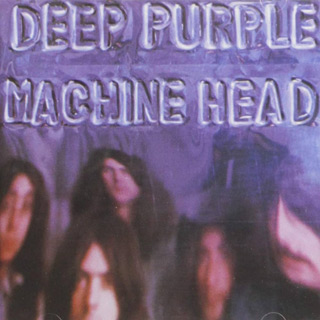
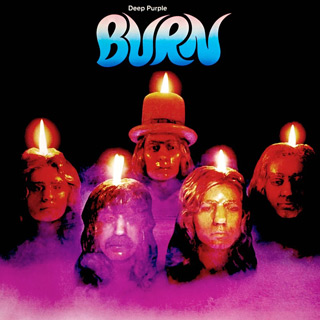
CrypticRock.com – Agree 100%, you are right. For a lot of people it would be easier to just pack it in when things get hard, but you have to stick with things if you truly believe in what you are doing.
Roger Glover – Well it all depends on circumstances. Some people are forced to, they have no other choice. It is a question of economics. At the time I turned professional, my father was gone, my mother and sister lived alone. We had no money. I was earning a little bit by being in a band. I was going to college at the time. I had nothing to lose. I think if you got something to lose, if you got a really well-paying job and you enjoy it, then that choice will then be more difficult. But taking a chance on being a musician is taking a huge chance, but if you have nothing to lose, you might as well do it. Once you are there, you realize it is not as easy as you thought it was, like any job. Anything worth doing is never going to be easy.
CrypticRock.com – That is true. Speaking of touring and live shows, you recently released two live records on September 18th. One being, From The Setting Sun… (In Wacken) recorded in Germany, and the other, ….To The Rising Sun (In Tokyo), from Budokan in Japan. What was the inspiration behind these releases?
Roger Glover –It actually is not our choice whether a gig is recorded or not, as far as I know. They were both prestigious gigs. Wacken is one of the biggest festivals in the world, and the Budokan is the Budokan, it is a sacred venue. So they were recorded separately without any plan to pair them. This idea came from the record company, when they looked at the footage and saw the discrepancy between the crowds. The Wacken crowd were real hard core industrial strength Heavy Metal, tattoos, and black leather. Then there is the Budokan crowd, which is almost like going to a church where everyone is well dressed and quiet and calm before the show. They both were there for the same reason, which is the music, with the same band, and more or less the same songs. It was an interesting look and feel.
When they came up with the idea, they approached me and asked “what did you think?” I said well I don’t know, I wasn’t sure about the Wacken show myself, but the Budokan to me was a better show. He said “oh it was great. Maybe I’m a fan working at the record company, but I’m also a fan and I think the Wacken show was great.” It shows a completely different atmosphere. I thought it was a neat idea and I do not think anyone’s done this before, so why not. It is their gamble, not ours. If they want to do it. They have been very good to us. Our 2013 album, Now What?!, they did a great job in Europe anyway. We had a huge hit number one everywhere, more or less.
CrypticRock.com – It is quite interesting to release albums like this. Besides being packed with so much music, one of the key aspects of these live records is the pristine production quality. Are you happy with the way the two records sound?
Roger Glover – I think they are pretty well-recorded I must say. I didn’t really want to take part in the actual making of the record, but I was invited up to Hamburg where the two guys who were mixing the record were working. I spent a few days there in the studio with them listening to stuff, as well as discussing stuff. I did a lot of listening and making notes about what I thought was wrong. They would send mixes, I would send them back. I just over saw it really. They did a great job, I really could not control it really. It is a live album, it is not perfect by any means. There are very few repairs to. It is absolutely live apart from having maybe six instances where the microphone cut out or the wrong guitar given to Steve Morse. There are a couple things like that, but by and large, it is a genuine live album. You do not find many of them around. Most bands go in and doctor their live albums and make them sound better. There are lots of things going on, we understand. I am sure there are a lot of live albums where the only live thing is the audience (laughs).


CrypticRock.com – That is true, with all of the modern advancements in technology. It seems to be more prevalent now with live records, they are not sincerely live albums anymore.
Roger Glover – Now What?! (2013) is essentially a live album. Although we were in a studio, and we did not have all of the songs finished by then, all of the backing tracks were all done with the four of us in the same room playing at the same time. A lot of the solos that would happen spontaneously were kept. Obviously we were making a record so some solos were replaced and some bits were added such as keyboards. Generally speaking, that is what makes it sound so fresh I think. Now you got live versions of what we did in the studio, it is kind of interesting if you’re a fan. If you are not a fan, I hope you are interested (laughs).
CrypticRock.com – Honestly, fans are the ones who enjoy the live albums the most. Although, people who are not fans may turn them on. There is something endearing about a live recording. Now you mentioned how the contrast in Germany with Wacken, which is more of a real hardcore Heavy Metal festival, and in Japan with Budokan where you recorded; that is really circumstantial to the cultures. The Japanese are a much more reserved culture. When you go somewhere like Wacken, yes it is mostly Europeans there, but people travel from all over the world to go to Wacken. Therefore, you get all sorts of cultures at Wacken.
Roger Glover – Yes I know. There is also a difference in playing at festivals where a lot of the crowd is not there for you, they are there for the festival. Or for other bands that are there or the main act, and the other good acts to go where at Budokan it was our show, there was no support act, it was just us. Again, it was a completely different atmosphere. The fact that they are extremes I think is the attraction. They are two extremes, we play a lot of shows all over the world and every night is a slightly different night. There is a different atmosphere, different sound, different crowd, different reaction, different solos, different bass parts, different mistakes, there is always something going on. These two were rather extremes, so it highlights that aspect of our lives.
CrypticRock.com – Right, two complete polar opposites. Now this also includes a Blu-ray release. Have you actually seen the visual of the video yet or you have not seen it?
Roger Glover – I have seen rough cuts, but I have not seen the finished cut. I know roughly what is there, but I have yet to sit down and look at it. I probably will sometime in the next ten years.
CrypticRock.com – (laughs) Well you are very busy on the road touring, so you are living it rather than watching it. The band did in fact release a new studio record entitled Now What?! back in 2013. It was the first studio recording since 2005 and there is a track from the album featured in these live records. Tell us, what was it like going back into the studio to work on that record?
Roger Glover – That was great, we had a really good time. I think maybe because it had been eight years since 2005’s Rapture of the Deep. We were pretty too busy on the road to even think about making a new record. In this day and age, making a record is not necessarily the best thing you can do. It is financially not very viable, records do not sell much anymore. It is mostly downloaded stuff. People say “oh you should just do a single or do an EP or put it on YouTube or iTunes, just bit by bit,and be part of the new generation.” We are not like that, we are not part of the new generation, we are who we are. We are an album band. and to us albums are sort of milestones. They are snapshots in the state of the band at that time.
Gradually we came to the idea that it was time we did another album. I think we were actually really ready to get into the studio, and Bob Ezrin was a huge part in that. He provided us with the perfect atmosphere and the perfect guidance to bring the best out of us. I am very proud of that album because after a career that we had, it is very difficult not to be a parody of yourself. We came up with some very interesting songs that sounded like Deep Purple, and yet are nothing like Deep Purple. That is a hard thing to do and it was a very enjoyable experience. In fact, so much we are working towards the next one. We had a few rehearsals and we went into the studio in February. By some time next year we will have another album.
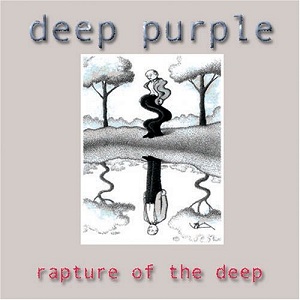

CrypticRock.com – That is quite a quick turnover considering the long gap in the last record cycle.
Roger Glover – Well, considering what we used to do in the seventies, which was at least one album a year, followed by tour after tour after tour after tour. That was busy. I cannot imagine doing that now, an album a year? Man, I do not know if we can do that. As Bob Dylan said, “I can do things but I cannot do now, but I can do things differently now.”
CrypticRock.com – That is true. It is funny when you look back in hindsight, you look at the things you did when you are younger, and you wonder how you did it. It is unbelievable when you look back at it because your perspective on life changes as well.
Roger Glover – Yes, I know I look back at stuff I was wearing on stage in the eighties and say “oh god how could you have worn that?” (laughs)
CrypticRock.com – (laughs) It is living in the moment and something to look back on years later right.
Roger Glover – Yes, the great thing about looking back is you can laugh at the bad times too. The bad times are there because otherwise you would not appreciate the good times.
CrypticRock.com – Of course, you need that balance of both. Sometimes you need the bad to enjoy the good, it makes you appreciate things more.
Roger Glover – Life is a divided world. There will always be black and white, good and bad, right and wrong, and left and right, this and that, salt and pepper, and Coke and Pepsi. There is always going to be diversity like that. That goes for lives in general. There is sadness and happiness from an equal measure. Some people continue to feel sad and I feel sorry for them, but if you have 50/50, you are doing good I think.
CrypticRock.com – Agreed. You are probably well aware that when asking some of the biggest Heavy Metal and Hard Rock bands over the past twenty years, they all list Deep Purple as an influence. How does that feel for you as a musician to know that?
Roger Glover – It is hard to know how I feel really, I do not feel any emotion about it. I suppose there is a certain egotistical pride about it, but it is an intellectual thought, it is not an emotional thought. I think we were just passing on the torch of what came to us from early Rock-n-Roll. That spark, that ignited Rock-n-Roll. That mixture of Country Western and Blues, then you throw some Jazz and Classical into the pot. The things we learned back then, inform us the way we play now. In a way it is like passing on the message. Nothing is really new, everything comes from something else. A lot of what Deep Purple did came from early Rock-n-Roll, it just got bent into the process of becoming our own. It is the same energy though and the same spirited music.
CrypticRock.com – Understood. Very well said. My last question for you is pertaining to movies. CrypticRock.com covers music and horror films. What are some of your favorite horror films?
Roger Glover – Well, probably one that shook me up the most was The Shining (1980). In the sixties, when I was growing up there was Hammer Films. To me that was Horror, Horror movies were Hammer films. Then you had Vincent Price and you had four big stars that did all of the Vampire, Dracula, and Frankenstein films. They were like comics. They were written and performed like comics. It was not true Horror, it was overdone Horror. It was Alice Cooper Horror, and that is a compliment to Alice by the way.
I am not particularly a fan of Horror Movies, I like anything good. I like a good movie no matter what it is. I like a good painting no matter what it is. I like a good song no matter what genre it is in. I just look for the best. All A Nightmare on Elm Street films just passed me by really, I saw bits and pieces of them. I cannot really comment as much on Horror movies except of course the song called “Vincent Price” on the album Now What!?. That song is all the ingredients you need to make a good Hammer film. I am a big fan of Mel Brooks’ Young Frankenstein (1974). Certain movies will forever be funny, that is one of them. Others are, Caddyshack (1980), Airplane! (1980), and Spinal Tap (1982). They will always be funny and you can always get something from them.
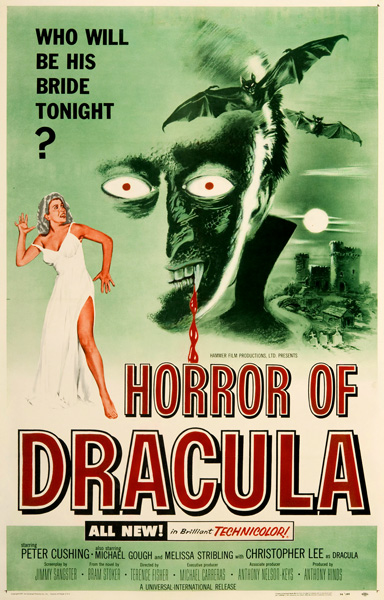
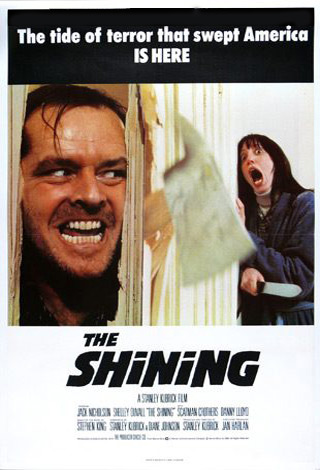







No comment